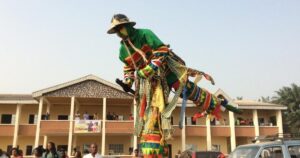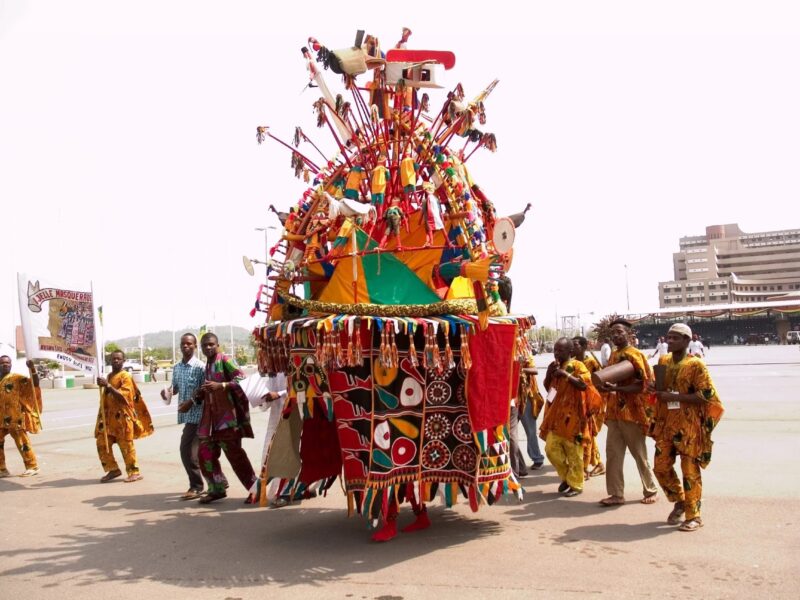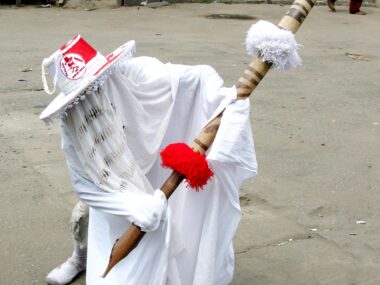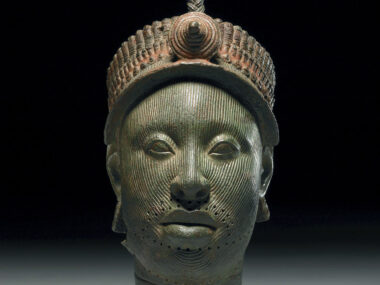Masquerades play a significant role in Nigerian culture, particularly during festivals and traditional ceremonies. These masked performers embody spiritual, cultural, and social significance, representing ancestral spirits, deities, historical figures, or natural forces. Their presence is not merely theatrical but deeply embedded in the fabric of Nigerian traditions, carrying out specific roles that vary across different ethnic groups and regions.

Cultural Significance
- Spiritual Connections: Masquerades are often believed to embody spirits of ancestors or supernatural beings. They serve as intermediaries between the physical world and the spirit realm, playing a vital role in rituals that seek blessings, protection, and prosperity for the community.
- Community Identity: Masquerades contribute to the identity and cohesion of Nigerian communities. Each masquerade has unique attributes, dances, and costumes that distinguish it, reflecting the cultural heritage and history of the group.
- Educational Role: Through elaborate performances and storytelling, masquerades educate the community about history, morality, and traditional knowledge. They transmit cultural values, norms, and beliefs from one generation to the next, preserving the oral traditions of Nigerian societies.
Roles and Performances
- Ceremonial Functions: Masquerades are central to various ceremonies, including initiation rites, weddings, funerals, and agricultural festivals. They bless crops, mark significant life events, and ensure the continuity of cultural practices.
- Entertainment and Celebration: During festivals such as the New Yam Festival (Iri Ji Ohu), Argungu Fishing Festival, or Osun-Osogbo Festival, masquerades entertain spectators with energetic dances, music, and dramatic performances. These festivities attract locals and tourists alike, showcasing the vibrancy of Nigerian culture.
- Social Control and Governance: Some masquerades serve as instruments of social control, enforcing community norms and resolving disputes. They may symbolize authority or justice, ensuring harmony and order within the community.
Types of Masquerades in Nigeria
- Gelede Masquerade (Yoruba): Celebrated among the Yoruba people, Gelede masquerades honor women and mothers. Performers wear elaborate costumes adorned with colorful fabrics, beads, and masks depicting diverse motifs, embodying powerful spiritual entities that protect the community.
- Eyo Masquerade (Lagos): Eyo masquerades are iconic to Lagos, often seen during the Eyo Festival or other significant events. Participants, dressed in white robes and tall hats, parade through the streets to honor important personalities or commemorate historical events.
- Ekpe Masquerade (Efik, Ibibio): Ekpe masquerades are prevalent among the Efik and Ibibio people of southeastern Nigeria. They feature masqueraders wearing elaborate masks and costumes during rituals, festivals, and secret society gatherings, symbolizing authority and ancestral wisdom.
Challenges and Preservation Efforts
- Modernization and Cultural Change: Urbanization and globalization pose challenges to traditional masquerade practices. Younger generations may be less interested in participating, leading to concerns about the preservation of cultural heritage.
- Environmental and Legal Restrictions: Some masquerade traditions face challenges due to environmental degradation or legal restrictions on wildlife conservation (if masquerade costumes include animal parts).
- Revitalization Efforts: Cultural institutions, NGOs, and government agencies are working to revive and sustain masquerade traditions through education, festivals, and community engagement initiatives. Efforts include documenting oral histories, supporting artisans, and promoting tourism.
Conclusion
Masquerades in Nigerian festivals are more than colorful performances; they are essential cultural expressions that connect communities with their spiritual and historical roots. As Nigeria continues to evolve, preserving and celebrating these traditions are crucial for maintaining cultural diversity, promoting tourism, and fostering national pride. Masquerades serve as living symbols of resilience, creativity, and the enduring spirit of Nigerian cultural heritage.










